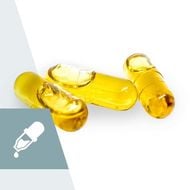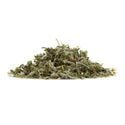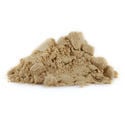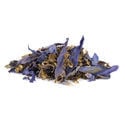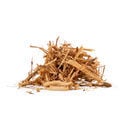Everything You Need To Know About Maca Root
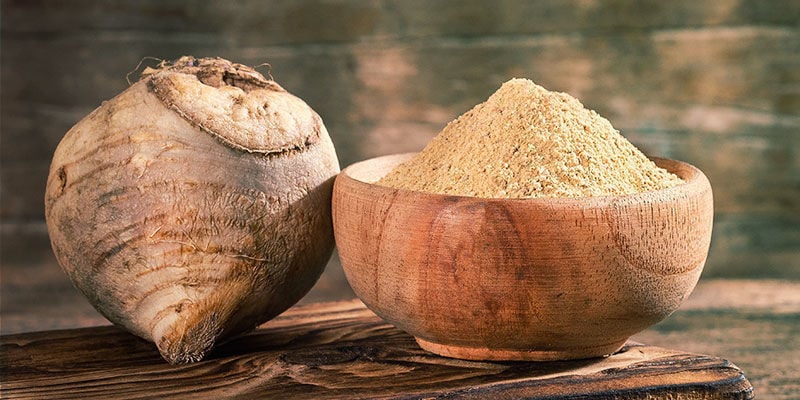
Heard about maca's unique potential to improve sex drive, energy level, and cognitive function? In this article, we take an in-depth look at Peruvian maca root, its rich cultural history, potential health benefits, side effects, and more.
Maca is an ancient root vegetable originating from the peaks of the Peruvian Andes. It is one of few plants perfectly acclimated to the harsh growing conditions of the region, and is believed to have played an important role as both a food source and an economic tool for the ancient cultures of Central Peru.
Today, maca has made a name for itself thanks to its unique variety of wellness benefits, which reportedly include improved sex drive, energy, and cognitive function, among others. Keep reading for an in-depth look at Peruvian maca and what gives it such huge potential.
What is maca (Lepidium meyenii)?
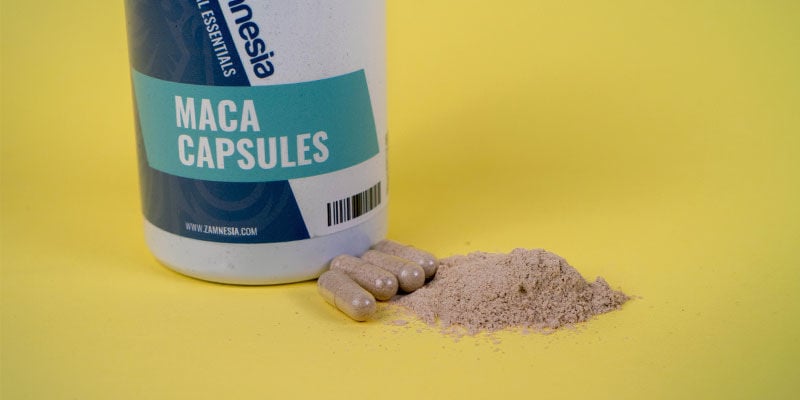
Maca (Lepidium meyenii) is a biennial plant native to Peru. It is most commonly sold around the world as a dietary supplement, sometimes called Peruvian ginseng or simply "maca". The plant produces fleshy, bulbous roots—with a slight resemblance (in shape) to small beets or turnips—that can be used fresh and dried, or further processed into maca powder or extracts. Thanks to its high concentration of vitamins and minerals, maca is said to have a variety of nutritional and health benefits.
Maca Capsules
Where is maca root from?

Maca is believed to have been a key crop of the indigenous communities of what is now Peru, where it is believed to have been cultivated for over 2,000 years. The plant was first described as Lepidium meyenii in 1843, based on a wild sample of maca collected in southern Peru. It is a member of the Brassicaceae family of plants (the same family as cabbage, kale, cauliflower, broccoli, and collards), and is believed to be the only member of this species native to The New World (Hermann & Bernet, 2009).
The earliest evidence of maca’s use as a food comes from excavations from Panaulauca Cave, a large limestone cave located in Peru's Junin Department that served as human shelter from 7700 BCE to 1200 AD. Excavated dried maca roots increase in size from roughly 1600 BCE, reaching their largest around 1000–300 BCE, suggesting the plant was being tended to and domesticated by humans (Hermann & Bernet, 2009).
No archaeological evidence of maca remains has been found at other excavation sites outside of the Panaulauca region, suggesting its use didn't spread far and is unique to the agricultural practices of people from the Central Andean region. However, historical accounts dating to the Spanish colonial period suggest that maca was a very prized product with a highly localised economic significance. Many Spanish writers from the 17th and 16th centuries make mention of maca’s use as barter by soldiers, as well as its invigorating properties and supposed ability to boost fertility (Hermann & Bernet, 2009).
How maca root works

Maca root is extremely nutritious and often sold or marketed as a superfood thanks to its high concentration of nutrients, vitamins, and minerals. It is made up of roughly 60–75% carbohydrates, 8.5% fibre, 10–14% protein (most of the protein in maca is made up of polypeptides and extremely beneficial amino acids), and 2% lipids. 100g of dried maca root also contains 250mg of calcium, 2g of potassium, and 15mg of iron, as well as an abundance of healthy fatty acids including linolenic, palmitic, and oleic acids. Furthermore, it contains high amounts of vitamin C and B2.
You may have heard of maca's aphrodisiac and libido-boosting effects. Chemical analysis of maca root shows that maca contains p-methoxybenzyl isothiocyanate and benzyl-isothiocyanate, two compounds often touted as being behind the root's potential aphrodisiac properties (Ochoa, 2001). However, it could also be that maca gets these effects simply from its high concentrations of proteins and other nutrients (Taylor, 2014). Macaenes and macamides are two lipids found in maca that are believed to contribute to the plant's unique effects (Xia et al, 2019).
Potential benefits of using maca

Maca is believed to have a variety of benefits when incorporated into a well-balanced diet or administered via supplements. Maca brands suggest that people in Peru consume up to 20g of dried maca every day in order to reap the plant's unique effects on the body. So far, scientific research has explored maca's potential in the following key areas:
-
Improving sexual health/performance: One of maca's most well-known claims is its potential to increase libido and improve sexual function/performance. While there has been little research into this field, some placebo-controlled studies suggest that taking small amounts of maca every day may increase libido (Gonzales et al, 2002). Other studies have examined maca's potential to help reduce erectile dysfunction in men (Zenico et al, 2009) and improve sex drive in menopausal women (Dording et al, 2015).
-
Improving fertility: Perhaps one of the oldest suspected benefits of maca is its potential to enhance fertility, especially in men. In fact, some Spanish colonial texts made mention of the Incas using maca to enhance the fertility of their livestock. In 2016, a review of five studies found that maca may help improve the semen quality of both fertile and infertile men. However, the authors of the review called for more vigorous research, as the total number of trials, the total sample size, and the risk of bias of the studies they reviewed prevented them from drawing more solid conclusions about maca root's effect on semen quality (Lee et al, 2016).
-
Boosting energy level and endurance: Another commonly reported benefit of maca is its ability to enhance energy level and endurance. Motivated by the use of maca among athletes, a 2009 study published in the Journal of Ethnopharmacology explored the effects of maca on trained male cyclists (Stone et al, 2009). The cyclists performed a 40km time trial both before and after supplementing with maca and placebo for 14 days. The participants also completed a test to measure their sexual desire. The study found that maca supplementation improved time trial results, though not significantly (especially when compared to the placebo). Maca did, however, markedly increase sexual desire in the participants.
- Brain function and cognition: A variety of animal studies suggest, at least in theory, that maca may help to improve cognitive function. Studies show, for example, that maca improves markers of memory impairment in mice under the influence of drugs (scopolamine) and alcohol. However, more research is needed to test and verify these effects in humans (Rubio et al, 2007 & 2011).
Other benefits of maca
A variety of preliminary research into maca suggests that it may also:
-
Promote bone health (Yi et al, 2016)
-
Improve mood, anxiety, and stress (Gonzales-Arimborgo et al, 2016)
-
Lower blood pressure (Stojanovska et al, 2015)
-
Reduce UV damage and promote skin health (Gonzales-Castañeda et al, 2011)
Unfortunately, as is often the case with many supplements, more research is needed to better understand maca, its active components, and their mechanisms of action.
Are maca root supplements safe?

Many maca brands and promoters claim that maca supplements are completely safe. And studies seem to support this; in 2016, for example, a study of 175 participants found that taking 3g of dried black or red maca every day for 12 weeks was well-tolerated (Gonzales-Arimborgo et al, 2016). However, anecdotal evidence from consumers suggests that maca supplements can sometimes cause:
-
Agitation: Some people describe feeling agitated, jittery, or wired after taking maca, similar to the feeling of having had too much coffee.
-
Insomnia: Some people report having problems sleeping after taking maca supplements.
-
Digestive issues: Raw maca supplements can cause an upset stomach in some people.
- Acne: Maca is thought to impact our balance of hormones, which may cause short-term acne in some people.
Healthshop
Our new Healthshop stocks a wide range of supplements and natural products to help you lead the healthy life you've always wanted.
Looking to try some maca for yourself?
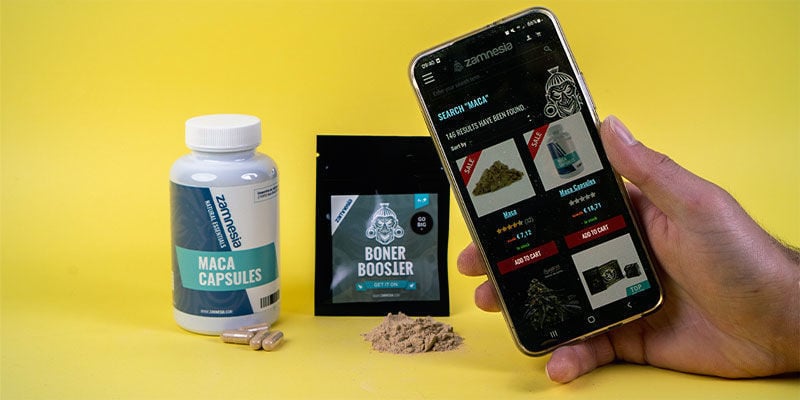
Thanks to its variety of potential benefits, it's no wonder that maca has become an extremely popular health supplement all around the world, in all sorts of populations. If you're interested in trying maca for yourself, make sure to shop around for a quality maca supplement from a respected retailer. Moreover, check out Zamnesia Boner Booster capsules, which contain 100mg of maca root powder in each capsule.
- Carla Gonzales-Arimborgo, Irma Yupanqui, Elsa Montero, Dulce E. Alarcón-Yaquetto, Alisson Zevallos-Concha, Lidia Caballero, Manuel Gasco, Jianping Zhao, Ikhlas A. Khan, & Gustavo F. Gonzales. (2016, September). Acceptability, Safety, and Efficacy of Oral Administration of Extracts of Black or Red Maca (Lepidium meyenii) in Adult Human Subjects: A Randomized, Double-Blind, Placebo-Controlled Study - https://www.ncbi.nlm.nih.gov
- Dording CM, Schettler PJ, Dalton ED, Parkin SR, Walker RS, Fehling KB, Fava M, & Mischoulon D. (2015). A double-blind placebo-controlled trial of maca root as treatment for antidepressant-induced sexual dysfunction in women - https://pubmed.ncbi.nlm.nih.gov
- Fan Yi, Xiao-lei Tan, Xin Yan, & Hai-bo Liu. (2016). In silico profiling for secondary metabolites from Lepidium meyenii (maca) by the pharmacophore and ligand-shape-based joint approach - https://www.ncbi.nlm.nih.gov
- Gonzales-Castañeda C, Rivera V, Chirinos AL, Evelson P, & Gonzales GF. (2011 Aug). Photoprotection against the UVB-induced oxidative stress and epidermal damage in mice using leaves of three different varieties of Lepidium meyenii (maca) - https://pubmed.ncbi.nlm.nih.gov
- Hermann M. and Bernet T. (2009). The transition of maca from neglect to market prominence: Lessons for improving use strategies and market chains of minor crops [on-line]. Agricultural Biodiversity and Livelihoods Discussion Papers 1. Bioversity International, Rome, Italy. - https://www.bioversityinternational.org
- Lee MS, Lee HW, You S, & Ha KT. (2016 Oct). The use of maca (Lepidium meyenii) to improve semen quality: A systematic review - https://pubmed.ncbi.nlm.nih.gov
- Ochoa, & Carlos. (2001, July). Maca (Lepidium meyenii walp.; Brassicaceae): A nutritious root crop of the central andes - https://link.springer.com
- Rubio J, Qiong W, Liu X, Jiang Z, Dang H, Chen SL, & Gonzales GF. (2011). Aqueous Extract of Black Maca (Lepidium meyenii) on Memory Impairment Induced by Ovariectomy in Mice - https://pubmed.ncbi.nlm.nih.gov
- Rubio, J., Haixia, D., Gong, M., Liu, X., Chen, S. & Gonzales, G. (2007/10/01). Aqueous and hydroalcoholic extracts of Black Maca (Lepidium meyenii) improve scopolamine-induced memory impairment in mice - https://www.sciencedirect.com
- Stojanovska L, Law C, Lai B, Chung T, Nelson K, Day S, Apostolopoulos V, & Haines C. (2015 Feb). Maca reduces blood pressure and depression, in a pilot study in postmenopausal women - https://pubmed.ncbi.nlm.nih.gov
- Stone M, Ibarra A, Roller M, Zangara A, & Stevenson E. (12/10/2009). A pilot investigation into the effect of maca supplementation on physical activity and sexual desire in sportsmen - https://pubmed.ncbi.nlm.nih.gov
- Taylor, & L. (2014, November 8). HERBAL INFORMATION SHEET: MACA ROOT. Cheryl's Herbs. - https://cherylsherbs.com
- Xia, C., Deng, J., Chen, J., Zhu, Y., Song, Y., Zhang, Y., Li, H. & Lin, C. (2019/11/01). Simultaneous determination of macaenes and macamides in maca using an HPLC method and analysis using a chemometric method (HCA) to distinguish maca origin. Revista Brasileira de Farmacognosia, Volume 29(6), 702-709. - https://www.sciencedirect.com
- Zenico, T., Cicero, A., Valmorri, L., Mercuriali, M. & Bercovich, E. (2009). Subjective effects of Lepidium meyenii (Maca) extract on well-being and sexual performances in patients with mild erectile dysfunction: a randomised, double-blind clinical trial. Andrologia, Volume 41(2), 95-99. - https://onlinelibrary.wiley.com
Maca




 Seedshop
Seedshop Headshop
Headshop Vaporshop
Vaporshop Healthshop
Healthshop Smartshop
Smartshop Shroomshop
Shroomshop Plantshop
Plantshop United States
United States

